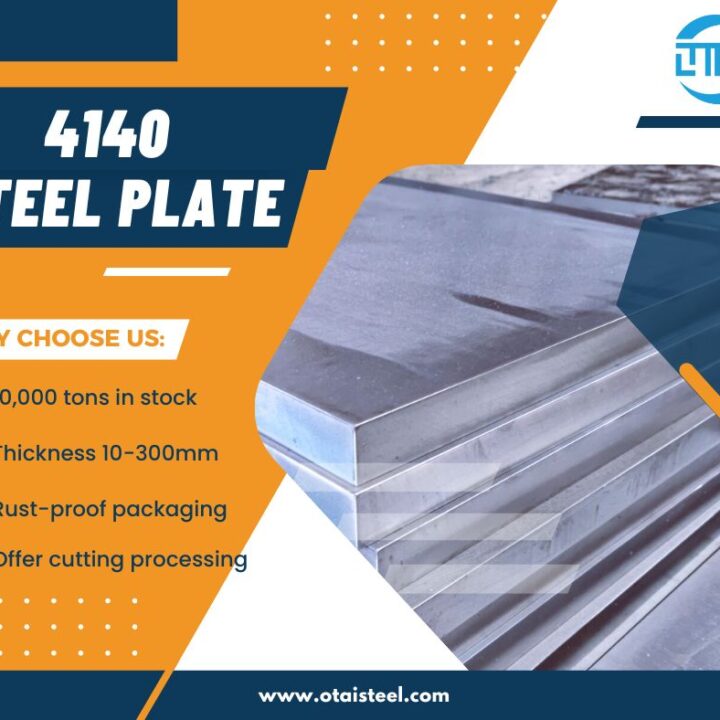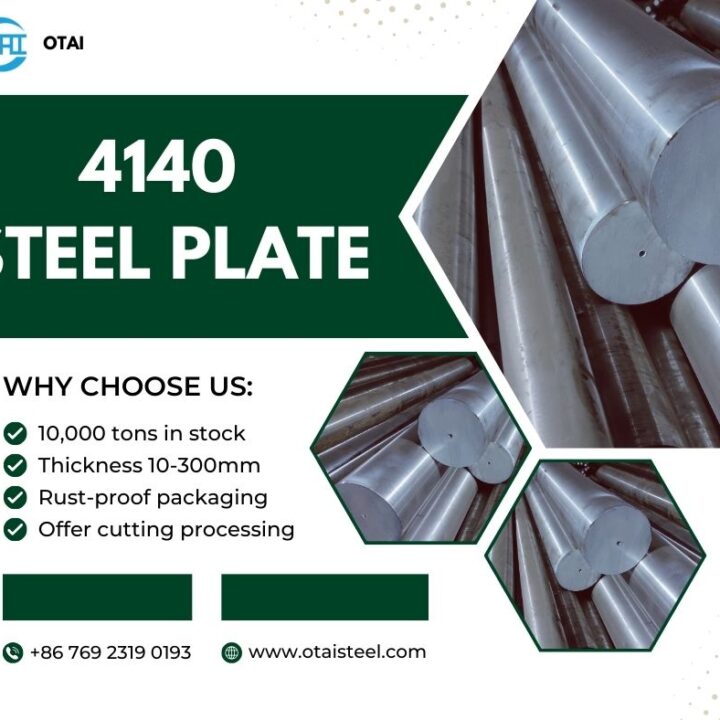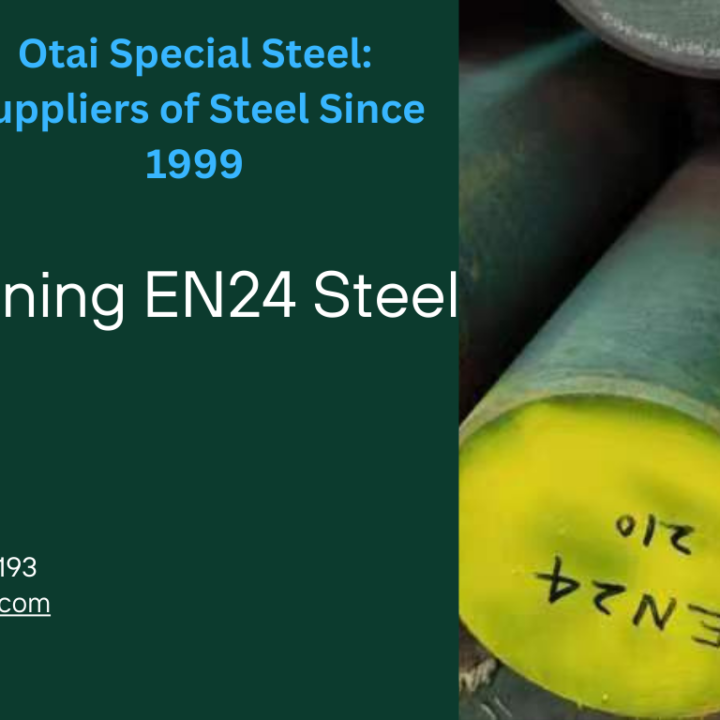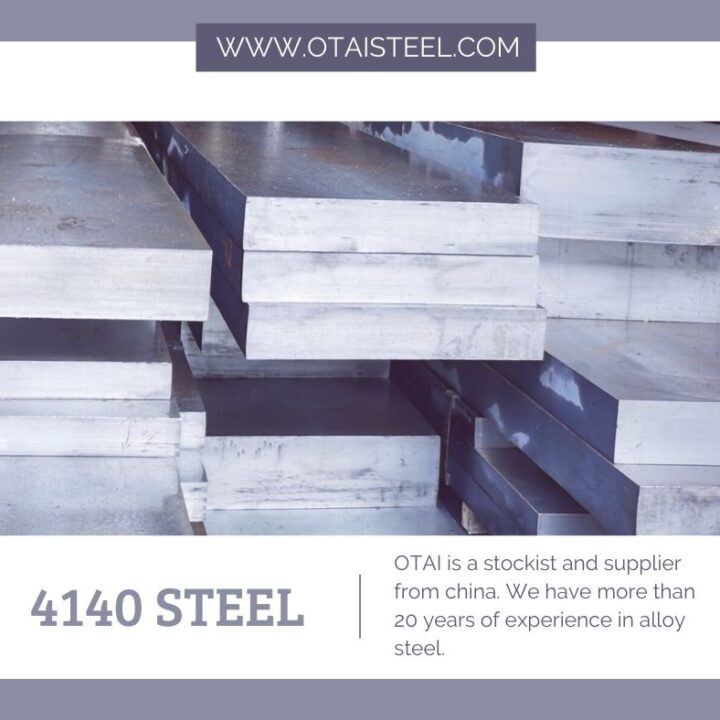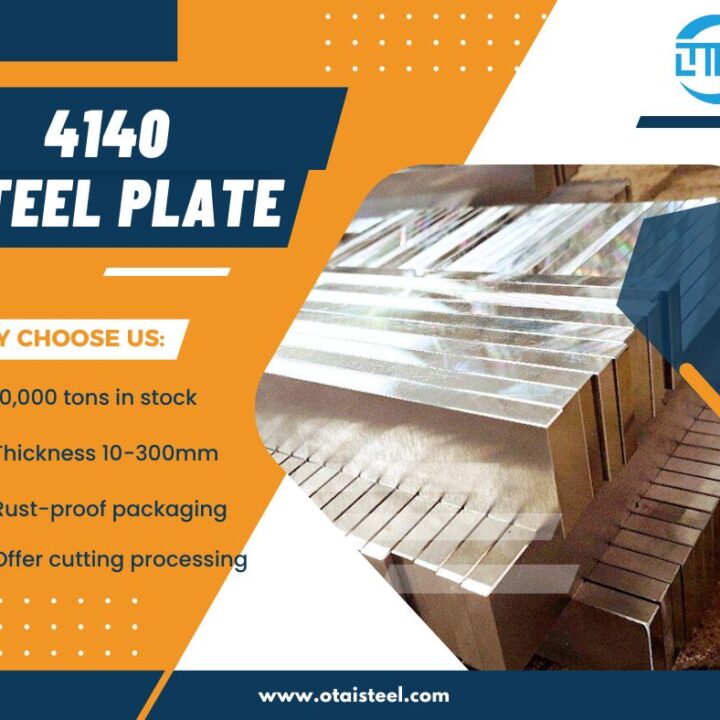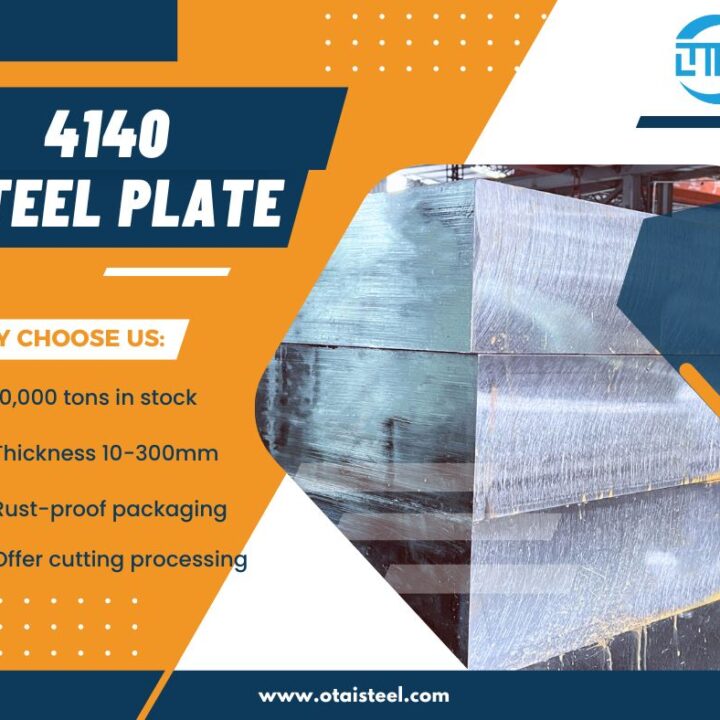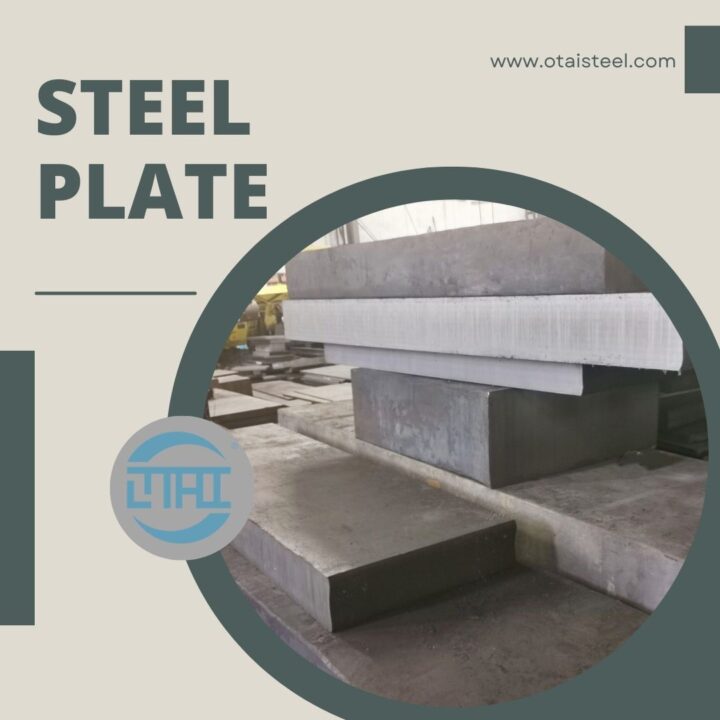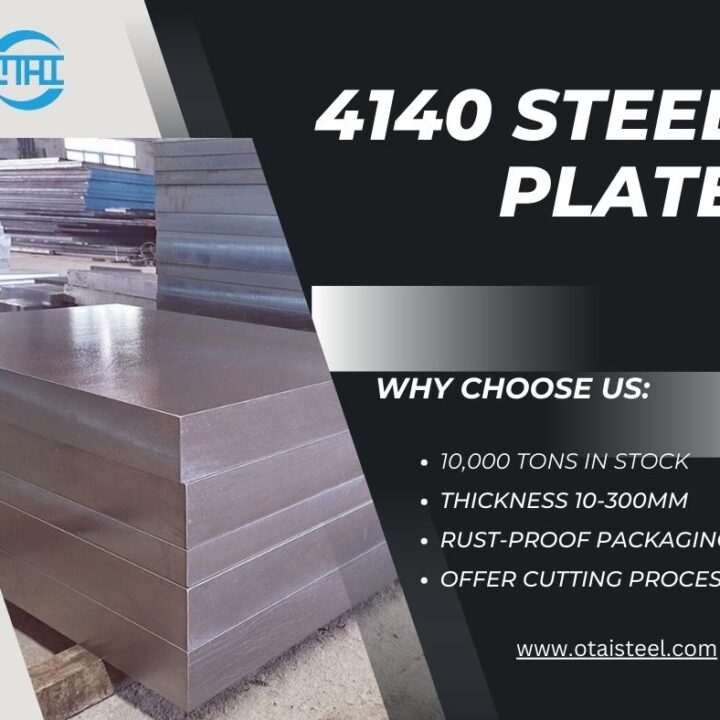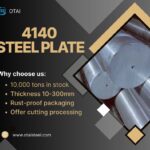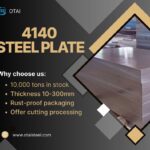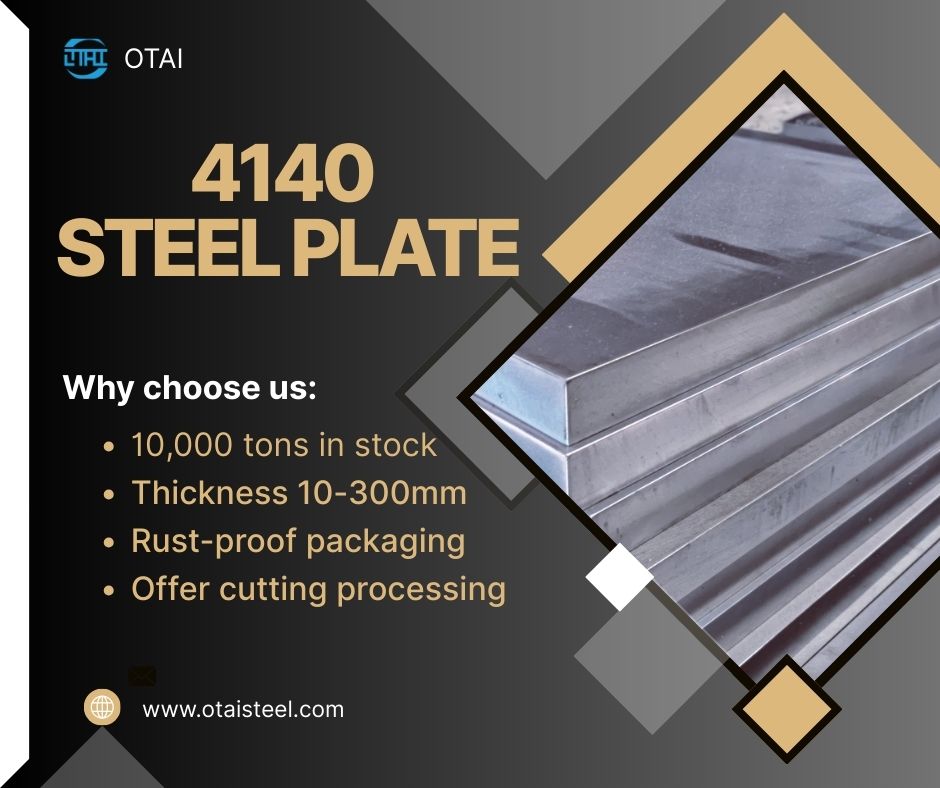 4140 Steel Tube – Properties and Engineering Insights
4140 Steel Tube – Properties and Engineering Insights
When engineers and buyers look for a material that balances strength, toughness, and machinability, the 4140 steel tube often becomes the preferred choice. Known for its chromium-molybdenum alloy composition, this steel offers outstanding performance in demanding environments. Let’s dive deep into what makes 4140 steel tube so popular, its key specifications, and how industries apply it.
🔎 What is a 4140 Steel Tube?
A 4140 steel tube is a hollow cylindrical product manufactured from AISI 4140 alloy steel. With approximately 0.40% carbon, 1% chromium, and 0.2% molybdenum, this steel tube delivers both strength and hardenability.
Unlike standard carbon steel pipes, 4140 alloy steel tubing provides greater resistance to fatigue, wear, and high-pressure conditions. It’s widely available in seamless 4140 steel tubing and 4140 DOM tubing (drawn over mandrel) formats.
🧪 4140 Steel Tube Chemical Composition
The properties of 4140 steel tubes come from their carefully balanced alloy chemistry:
| Element | Content (%) | Role in Tube Properties |
|---|---|---|
| Carbon (C) | 0.38 – 0.43 | Increases hardness and strength |
| Chromium (Cr) | 0.80 – 1.10 | Boosts wear resistance and corrosion resistance |
| Molybdenum (Mo) | 0.15 – 0.25 | Improves toughness and high-temperature strength |
| Manganese (Mn) | 0.75 – 1.00 | Enhances hardenability and strength |
| Silicon (Si) | 0.15 – 0.35 | Improves hardness and shock resistance |
This chemistry allows 4140 seamless tubing to withstand extreme stress and maintain dimensional stability during machining or heat treatment.
⚡ Mechanical Properties of 4140 Steel Tubes
The mechanical properties of 4140 steel tubes vary depending on heat treatment. Here’s a quick overview:
| Condition | Tensile Strength (MPa) | Yield Strength (MPa) | Hardness (HRC) |
|---|---|---|---|
| Annealed | ~655 | ~415 | 18 – 22 |
| Normalized | ~965 | ~655 | 28 – 32 |
| Quenched & Tempered | 1240 – 1600 | 1080 – 1300 | 28 – 55 |
This flexibility makes 4140 alloy steel tubes ideal for applications requiring customized mechanical performance.
🏗️ Applications of 4140 Steel Tubes
Industries select 4140 mechanical tubing because it provides strength and wear resistance under load. Common applications include:
-
Oil & Gas Industry → Drill collars, tool joints, and pressure components.
-
Automotive & Aerospace → 4140 steel tube for driveshafts, landing gear, and engine components.
-
Industrial Machinery → Hydraulic cylinders, gears, axles, and spindles.
-
Construction Equipment → 4140 seamless tubing for heavy machinery frames and arms.
-
Tooling Applications → Bushings, bearings, and structural supports.
Because it can be hardened or surface-treated, the tube offers a wide range of performance customization.
🔧 4140 Steel Tube Machinability and Heat Treatment
-
In its annealed condition, the tube machines easily.
-
When hardened beyond 30 HRC, machining becomes more difficult, requiring carbide tools.
-
Engineers often choose 4140 DOM tubing when they need excellent dimensional accuracy and smooth internal finishes.
-
Heat treatment options include quenching, tempering, and nitriding, allowing hardness adjustments between 18–55 HRC.
This makes it possible to tailor 4140 steel tubing mechanical properties precisely to the application.
📏 Sizes and Availability
The 4140 tube sizes are available in a wide range of outside diameters (OD) and wall thicknesses. Standard supply includes:
| Outside Diameter (OD) | Wall Thickness Range | Form Available |
|---|---|---|
| 10 mm – 600 mm | 1 mm – 50 mm | Seamless, DOM, Hot Rolled |
Large-diameter 4140 seamless tubes are often used in pressure vessels, while smaller DOM tubes serve precision automotive and aerospace parts.
🛡️ Benefits of Using 4140 Steel Tubes
-
High tensile strength and fatigue resistance.
-
Better wear resistance than plain carbon steel.
-
Customizable hardness through heat treatment.
-
Excellent toughness for impact applications.
-
Dimensional accuracy when ordered as 4140 DOM tubing.
These benefits explain why 4140 steel alloy tubes remain a standard choice in critical engineering projects.
💡 Company Advantages – Why Source from Otai Special Steel?
-
Extensive Stock: Over 10,000 tons of 4140 steel products, including bars, plates, and tubes.
-
Range of Tube Types: Seamless, DOM, and hot-rolled 4140 tubes available in multiple sizes.
-
Tailored Processing: Cutting, machining, and custom heat treatment based on your specifications.
-
Certified Quality: Ultrasonic testing, chemical analysis, and SGS third-party inspections.
-
Trusted Globally: Regular supplier for companies like Thyssenkrupp, Borealis, and Schlumberger.
Whether you need 4140 alloy steel tubing for oilfield equipment or 4140 mechanical tubing for automotive use, Otai ensures reliable supply and precision processing.
❓ FAQ
Q1: What’s the difference between seamless 4140 steel tubing and DOM tubing?
Seamless tubing has no weld seam, offering excellent strength under pressure. DOM tubing is drawn over mandrel for higher dimensional accuracy and smoother internal surfaces.
Q2: Can 4140 steel tubes be welded?
Yes, with proper preheating and post-weld stress relief. Without these steps, cracking may occur due to high carbon content.
Q3: What hardness can 4140 steel tubes reach after heat treatment?
Quenched and tempered tubes can achieve up to 55 HRC, while nitrided surfaces may exceed 60 HRC.
Q4: Are 4140 steel tubes corrosion resistant?
Not naturally. While chromium improves wear resistance, they are not stainless. Coatings, plating, or protective environments are recommended.
Q5: Why is 4140 steel tube better than carbon steel tube?
It offers higher strength, better wear resistance, and longer service life in demanding applications.

